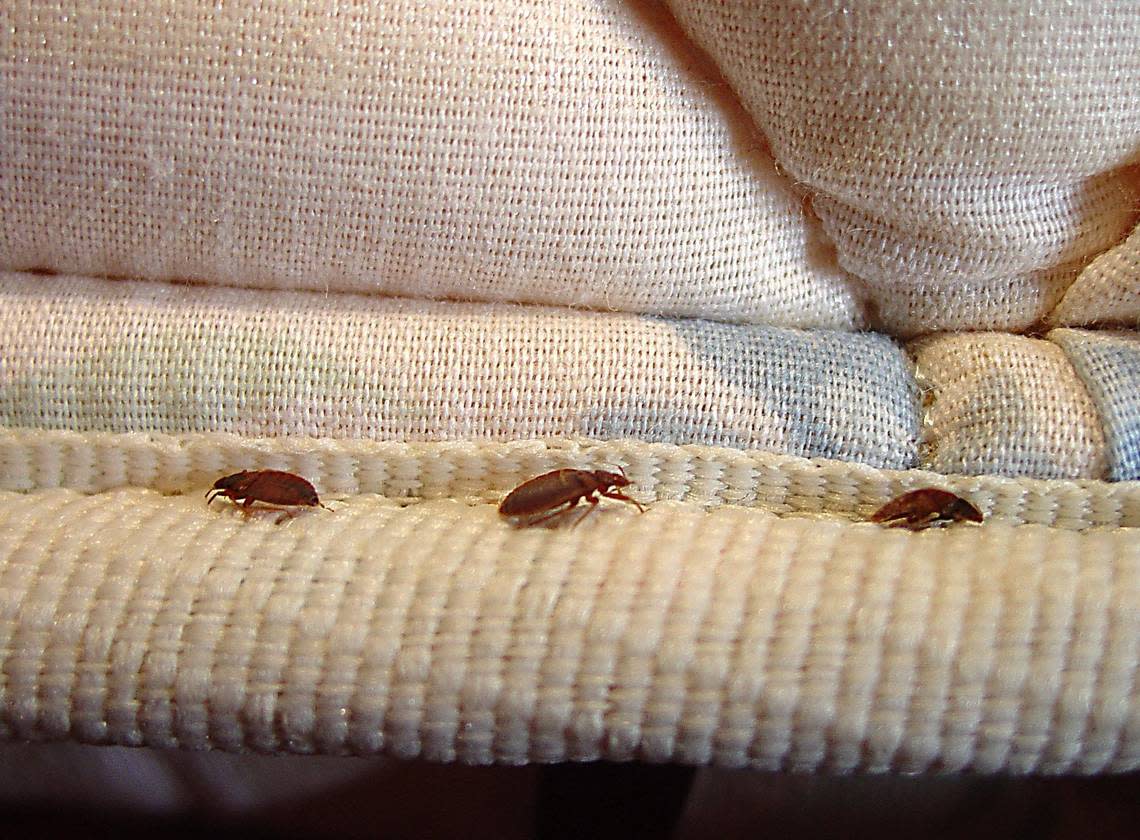Bed bugs, ticks and mosquitoes. Here’s how to avoid pests during a buggy summer in PA

Central Pennsylvania residents will likely see lots of mosquitoes, ticks and bed bugs this summer, according to the National Pest Management Association.
Barbecues, picnics and all outdoor activities introduce interactions with pests, and some are more of a concern than simply being a nuisance.
The Centre Daily Times spoke with Jim Fredericks, chief entomologist at the NPMA, about how people can avoid pests and stay safe during summer travel.
Here’s what to know about this summer’s buggy season in central Pennsylvania and across the Northeast U.S. region.
How can you limit tick and mosquito interactions?
The most important thing to do when you plan to be outside is to wear bug repellent, Fredericks said. It’s best to use one with an Environmental Protection Agency registration number.
“In order to be registered with the U.S. Environmental Protection Agency, a manufacturer needs to be able to show that A, the product does not cause harm to people or the environment, and then B, they need to prove that it actually works,” Fredericks said.
Another precaution you can take is to check yourself, your children and your pets for ticks when you return home from an outdoor activity.
The sooner you remove a tick, the less likely it is to be able to transmit Lyme disease, Fredericks said.
Taking a shower makes the tick check a lot easier, and you may be able to wash a tick off if it hasn’t attached itself yet.
To avoid mosquitoes, it can be helpful to reduce standing water on your property, Fredericks said. If you have a bird bath, make sure to dump it out and replace the water at least every couple days.
“If standing water is left in place for a week, then mosquitoes are able to complete their entire life cycle,” Fredericks said. “And so they’ll be able to lay eggs, the larvae will develop, the pupa will develop and you’ll have flying, biting mosquitoes with temperatures above 80 degrees or so.”
How can you avoid bed bugs?
Summer travelers should inspect hotel rooms and other vacation housing facilities for bed bugs.
“We should expect an increase in the number of bed bug calls, simply because for the last couple of years people just have not been traveling the same (amount) that they have in the past,” Fredericks said.
Take a look around the bed and bed frame for the pests, which are about a quarter-inch long, reddish-brown in color, flat and oval-shaped, Fredericks said.
You may be more likely to see the bugs’ fecal spots than the creatures themselves, Fredericks said. It looks like a tiny dark stain on fabric.
Not only should you inspect for bed bugs when arriving at a vacation destination, there are precautions you can take when you return.
“When you get home, (do) laundry right away, because the dryer is what’s going to kill any and all life stages of bed bugs that might be hitchhiking on your clothing that’s inside your suitcases,” Fredericks said.
Another good practice to combat bed bugs is to store your suitcase somewhere other than your bedroom. If bed bugs have come home with you in your bag, they might be able to stay alive by feeding off you in your bedroom.
“Instead keep it in the garage or in the basement, where any hitchhiking bed bugs are less likely to find a blood meal when they need one,” Fredericks said.
If you suspect you have a bed bug infestation in your home, it’s recommended you call in a professional pest management company.
“Bed bugs are really not a do-it-yourself type of a pest,” Fredericks said.
A professional will be able to more accurately determine the scale of the infestation, Fredericks said, and implement the best treatment practice to get rid of the bugs as quickly as possible.
Depending on how many bed bugs are in your home, an infestation may require return visits from a professional.
Heat treatment is one of the most common methods to get rid of bed bugs, as temperatures above 122 degrees Fahrenheit will kill all stages of bed bugs.
If you need a pest professional to take care of any issues at your home, you can use pestworld.org to locate an exterminator.
